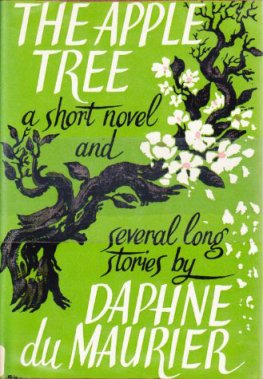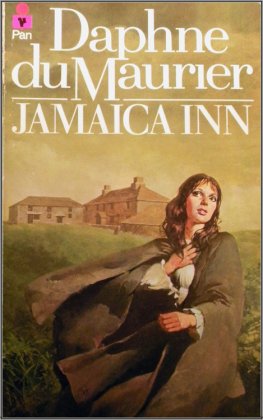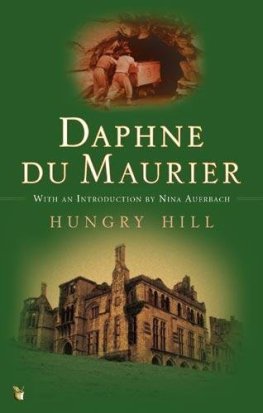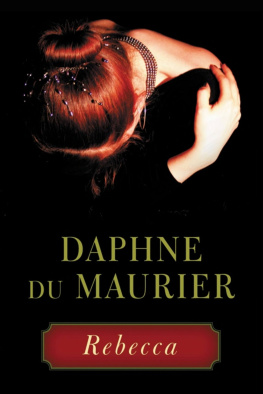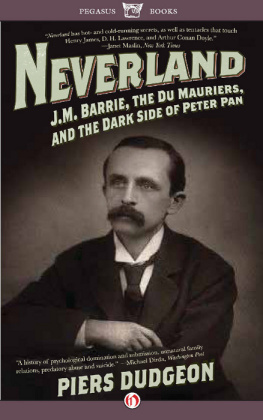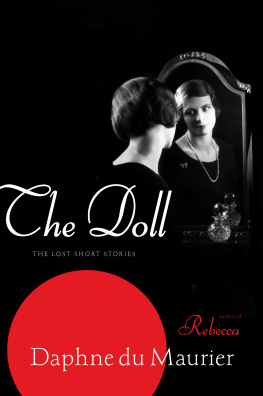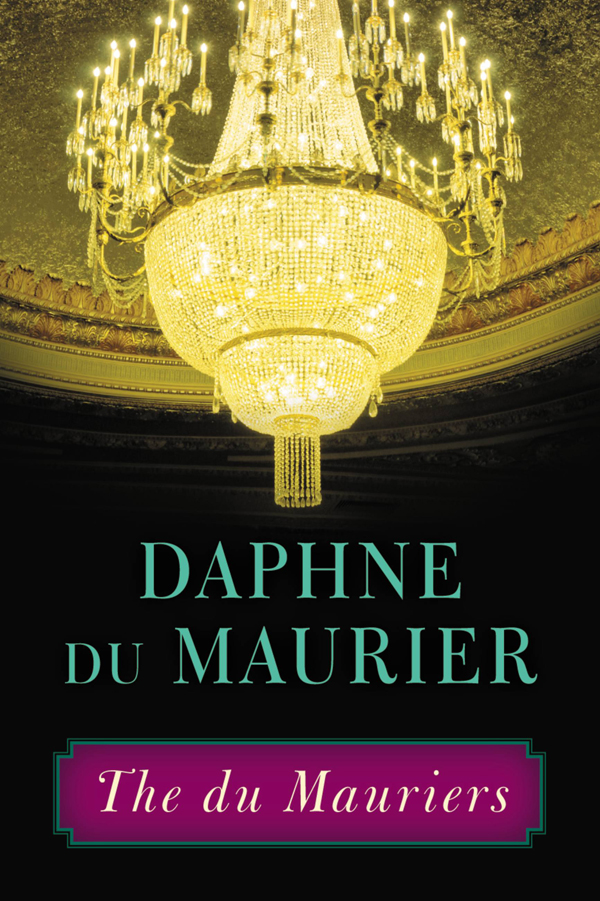Cover copyright 2013 by Hachette Book Group, Inc.
All rights reserved. In accordance with the U.S. Copyright Act of 1976, the scanning, uploading, and electronic sharing of any part of this book without the permission of the publisher constitute unlawful piracy and theft of the authors intellectual property. If you would like to use material from the book (other than for review purposes), prior written permission must be obtained by contacting the publisher at permissions@hbgusa.com. Thank you for your support of the authors rights.
The publisher is not responsible for websites (or their content) that are not owned by the publisher.
Daphne du Maurier published her family history, The du Mauriers, in 1937 when she was aged thirty. She had already in her twenties written a remarkable biography of her father, the famous actor-manager Gerald du Maurier, and four novels, the last of which, Jamaica Inn, was a spectacular success.
But if her literary career seemed effortless and happy, her childhood and adolescence had been unusually complex. Her mother was an actress and had met her husband during a production of J. M. Barries comedy The Admirable Crichton. Barrie seems to have been Gerald du Mauriers favourite dramatistSt John Ervine calculated that his tally of Barrie pieces was eight, including Peter Pan (in which he created the parts of Captain Hook and Mr Darling). He was something of a Peter Pan himself, a man who would not grow upat least not gracefully or with generosity. As the younger son and youngest child of a family of five, he was his mothers favourite and, made secure by her love, continued to feel happy during his schooldays at Harrow and confident of his success in the theatre. His nonchalant, easygoing style of acting, which concealed a fine technique, made it appear as if his great triumphs on stage came without any special exertionindeed with the same inevitability as his daughter was to win her popularity as a novelist. He did not know what it was to wait at stage doors to interview managers, she wrote of him, and to beg for parts in a new production.
Everything began to change after his marriage. Muriel, I love you, he wrote to his wife shortly after they married in 1903. It is a splendid thing that has happened to us both, dearest, and I hope the Great Spirit will bless us. Its by our truth, loyalty and devotion to each other that we shall accomplish a beautiful life I seem to love you in all ways, as a child, as a boy, as a grown man.
But the Great Spirit which blessed his first thirty-five years and granted him a beautiful life was about to take away what he called his sweet sense of security. The painful death from cancer of his brother-in-law Arthur Llewelyn Davies in 1907, followed by his sister Sylvias death three years later and, at the beginning of the First World War, those of his mother and his brother Guy, destabilised what had appeared to be Geralds naturally buoyant and optimistic nature. The joker who was always such good company, the charmer who became everyones favourite and who had been spared adult responsibilities was more than normally overwhelmed by these tragedies. Daphne du Mauriers perceptive biographer Margaret Forster tells us also that he grew dissatisfied with his acting career, became subject to a strange moodiness and eventually to periods of alcoholic depression which he inflicted on his wife. Mo, as she was called, worked hard at ensuring Geralds boredom was kept at bay, Margaret Forster writes.
[She] gave Gerald what he needed: stability, adoration, the comforts of a well-run home. But as he became more dissatisfied with himself Gerald began to grow restless What Mo could not respond to was the mercurial side of Geralds character, the side of him which was quick, a touch wicked, even a little crazy She was the centre of Geralds life, but increasingly he liked to travel away from it.
She also gave him three daughters, but not the son for whom he longed to carry on the name and history of the du Mauriers. Daphne, the middle sister, was born on 12 May 1907. During her early years she worshipped her father. He was funny, companionable, attentivealmost like another child. In temperament they were very similar. But he could not conceal his wish that she had been born a boy, and so, to please him, she imagined herself to be oneand he encouraged this. My tender one, he wrote to her,
Who seems to live in Kingdoms all her own
In realms of joy
Where heroes young and old
In climates hot and cold
Do deeds of daring and much fame
And she knows she could do the same
If only shed been born a boy.
And sometimes in the silence of the night
I wake and think perhaps my darlings right
And that she should have been,
And, if Id had my way,
She would have been, a boy.
The onset of menstruation put an abrupt halt to Daphnes fantasies of being a boy. But the more she observed and experienced adult sexuality, the more bewildered and unhappy she grew. Though her father complained that he could not get to sleep without Muriel beside him, he had no difficulty in going to bed with a series of young actresses. Why did her mother put up with such philandering? Daphne could not understand it. But mother and daughter had never been close, largely because Gerald came so awkwardly between them.
Daphne was educated by governesses at home and then, at the age of eighteen, sent to a school outside Paris to complete her education. Here she formed an emotional attachment with one of the teachers. She has a fatal attraction and now Im coiled in the net, Daphne wrote. She pops up to the bedroom at odd moments it gives one an extraordinary thrill. So perhaps, she reasoned, she really was a boy after all. I like women much better than men, she confessed. But the knowledge that she was partly lesbianor had Venetian tendencies as she described itfurther complicated her emotional life because she knew how much her father abhorred the filth of homosexuality.
Daphnes flirtations with men, and her first, rather lukewarm affaire with the actor-manager Beerbohm Trees illegitimate son, the future film director Carol Reed, provoked many scenes of possessive jealousy and anger from her father. Gerald seemed increasingly dependent: sometimes clinging to her, at other times accusing her of blatant immoralityto all of which was added her mothers disapproval for causing him such misery.


